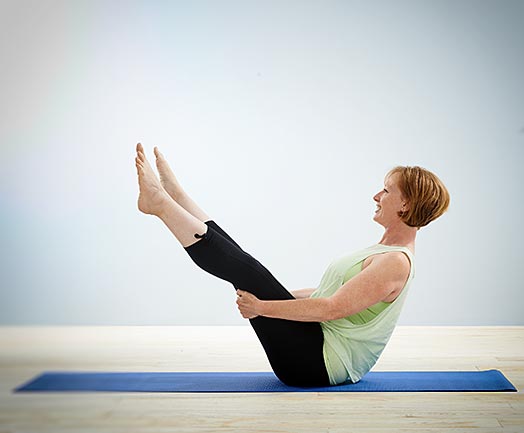Below are some frequency asked questions (FAQs) on Pilates. Should you have any further queries, please contact me, I would be happy to answer any questions you may have about how my Pilates classes and 1-2-1 lessons, Posture Analysis and intrinsic Biomechanics programs can help improve your body and wellbeing.
Your spine supports the weight of your body and allows your body to move with ease and comfort. That’s the theory anyway. However in practice, hours spent sitting in front of a computer screen or slumped in front of a TV means that the spine’s natural ‘S’ shape is lost, resulting in back pain and rounded shoulders. Pilates helps to re-align the spine and with that comes better posture.
Bev Grant is a fully qualified Pilates Instructor and Intrinsic Biomechanics Trainer.
To book a course of 1-2-1 lessons, to join a group class, or if you require advice on the best options for you, please contact Positive Pilates today.
Enquire Now →
